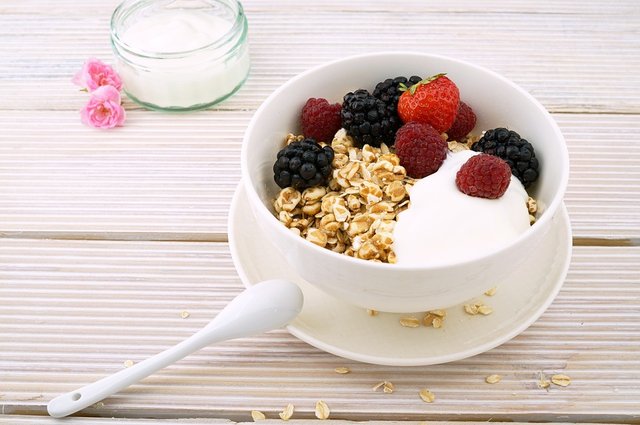Yogurt 101
Yogurt is a dairy product produced by the bacterial fermentation of milk. It's a biological process, similar to the fermentation of grapes to produce wine. Most yogurts are made from cow's milk, but some are also produced from sheep's and goat's milk, in addition to soy. These products are great options for those with lactose intolerance or a milk-protein allergy.

image source
Now, while claims abound for the health benefits of yogurt, only few are based on scientific evidence. As an excellent source of both calcium and protein, plain, non-fat yogurt is hard to beat. Another newer choice is Greek yogurt that is thick and concentrated in texture, taste and nutrients. This is done by straining out the extra fluid of regular yogurt, and doubling the protein content per serving.
Other yogurt products have added fiber - for digestive health - or phytosterols - to lower cholesterol - which have nothing to do with the dietary properties of yogurt itself. These are simply added to the yogurt for extra activity. A controversial claim for yogurt is that of the "probiotics", which are healthy bacteria added to yogurt, claiming to help immune function and promote digestive health. The jury is still out here, so don't count on these actions.
My bottom line? Stick with low or non-fat plain yogurt, adding your own fruit. Avoid fruit-added or sugar-sweetened yogurts that can double the calorie count without adding any nutrients. Choose a yogurt with a low-calorie sweetener if you're looking for a sweeter taste. These yogurts can often replace a high-calorie dessert.